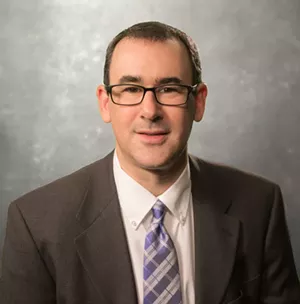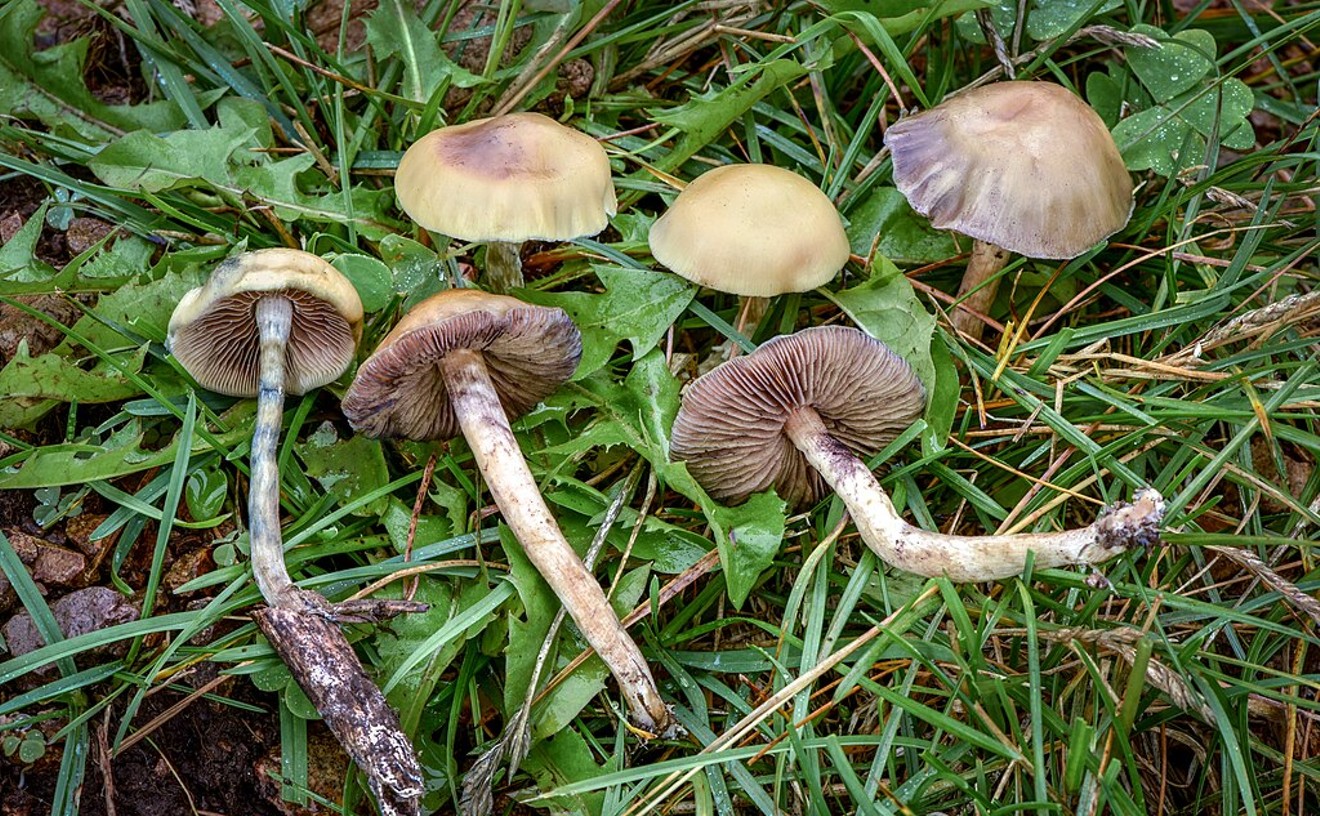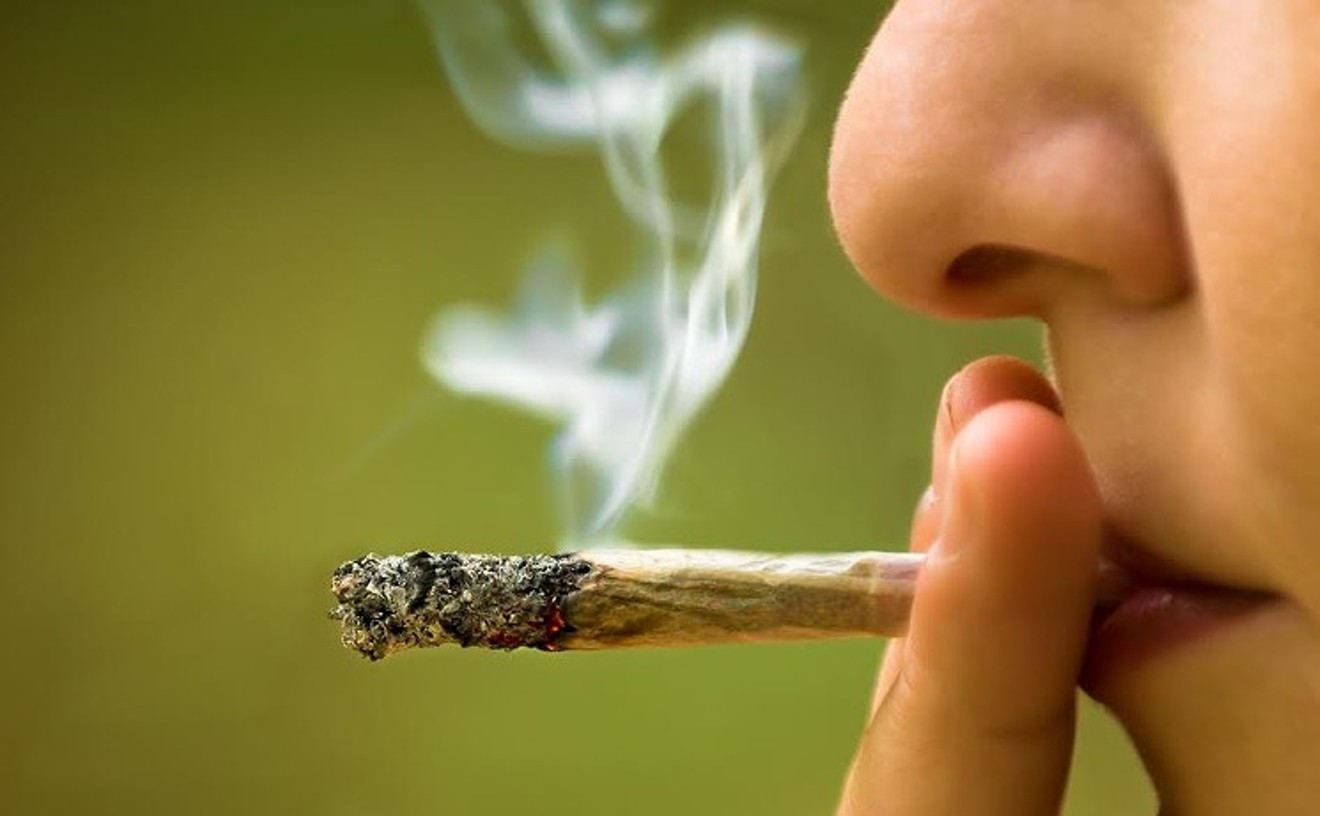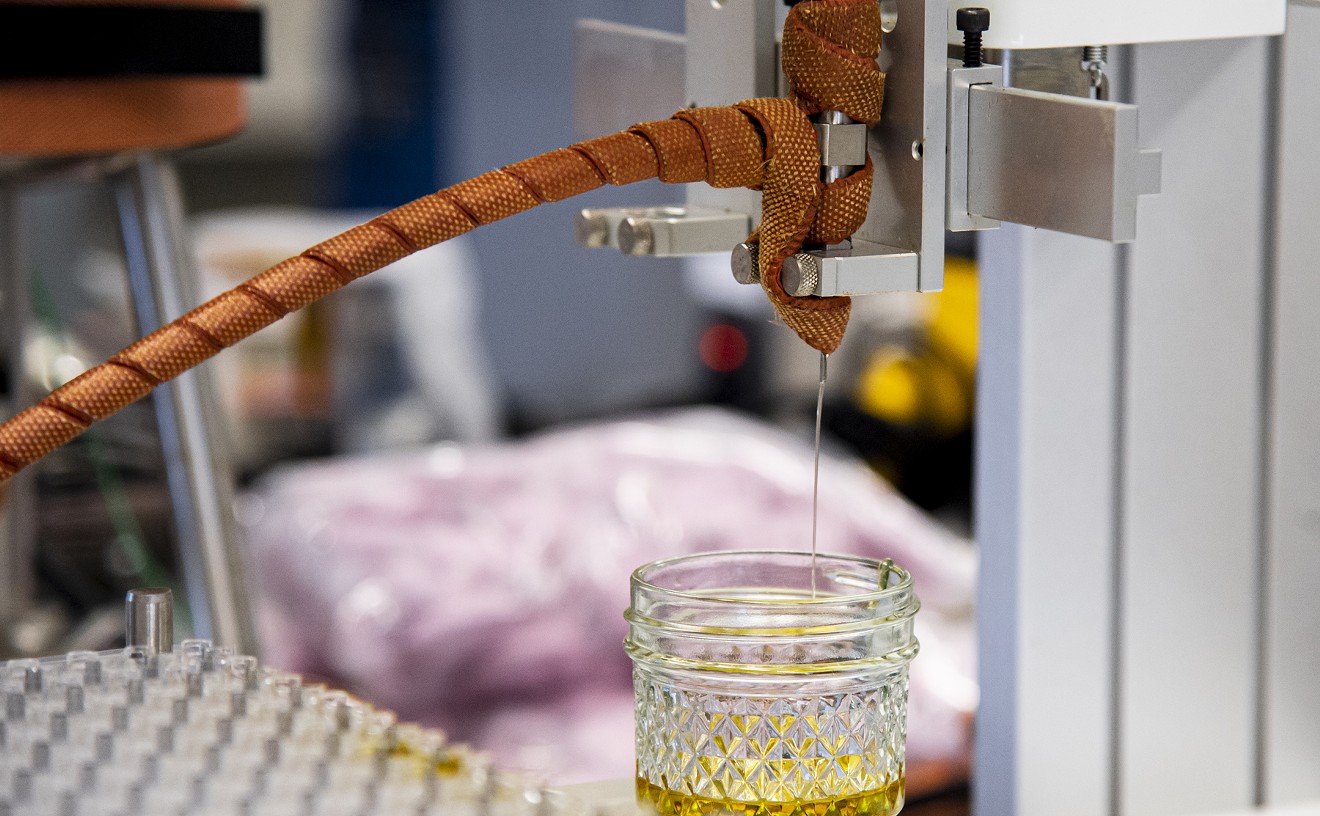One of the big selling points of Proposition 207, the citizens' initiative that legalized adult-use recreational cannabis in 2020, was the prospect of clearing marijuana arrest records of citizens who have been caught up in the war on drugs.
Passage of Prop 207 meant that convictions for minor offenses can be eliminated and sealed. Those include possession of up to 2.5 ounces of flower, up to 12.5 grams of concentrate, or paraphernalia, or charges related to growing up to six plants for personal consumption.
On July 12, the state began accepting expungement petitions for an estimated 192,000 Arizonans.
But nearly five months into the program, not much of a dent has been made in the monumental task.
Nonprofits such as Arizona NORML (National Organization for the Reform of Marijuana Laws) and the Arizona Justice Project have crisscrossed the state hosting clinics and providing free legal aid.
Slow Start
But the real action has taken place in the attorneys' offices and courtrooms."Maricopa County Attorney's Office has so far reviewed about 7,500 marijuana convictions, and filed petitions to expunge about 7,000 of them," Jason Kalish, chief of MCAO's trial division, wrote in a recent email. "We also have a website where people can ask us to file a petition on their behalf. So far we've received about 1,150 requests through the website. Between those two projects, we've filed 8,036 petitions to expunge on behalf of people."
There have been another 900 or so filed by citizens, and Kalish estimates that about 80 to 90 percent of those are approved. He believes about 9,000 have been expunged so far.

There is no statewide clearinghouse for the number of expungements completed, but Maricopa County is easily leading the way. The county is home to 4.5 million people and accounts for about 60 percent of all criminal prosecutions, not just drug charges, in the state.
MCAO and courts have managed to clear out a large number of minor drug convictions by going for the most obviously qualified cases and expediting them.
For Kalish, expungement began last November when Prop 207 was passed with 60 percent of the vote. By the time Spring 2021 rolled around, his office was ready to pull the trigger on July 12, the first day petitions were accepted.
"We wanted to give the greatest impact to the people we thought it would affect the most," Kalish said. "For us, that was the more recent cases, people who didn't have other felony convictions, or those who only had the marijuana conviction."
In the following months, Kalish's office focused on the "low-hanging fruit," and cooperated with the courts to pave the way for how other counties might clear out their cases.
Pima County Attorney's Office Senior Counsel Jack Chin estimates there are about 60,000 potential cases that need review, in a county with a million people.
Even in the "liberal bastion" of the state, clearing the records of those most affected by the war on drugs is not easy. The Pima County Superior Court reports that through the end of October, only 48 petitions had been filed, with 24 granted and 19 pending.
Chin said part of the problem is that the county courts are asking for a higher level of detail from prosecutors, which takes time and valuable resources.
"If the intent of the voters is to get this through, the bottom line is we would like to see more go through by orders of magnitude," he said. "There are 1,400 cases with marijuana and cannabis only that could go away, but I have to go to court and say I've looked at all of them."
Chin said the volume of cases, on top of the other work PCAO must accomplish, is daunting for a group that is basically a group of volunteers from his office.
He thinks the solution is to do more aggregate motions in order to clear the obvious cases so that resources spent on those can go into the more difficult ones. Those involve misdemeanor cases with a clear record and no legal ambiguities.
Other cases are trickier. Records get lost, circumstances are complicated, key information is lacking, such as the amounts of cannabis involved. And then there are cases in which the minor drug charge is secondary to some other crime.
Public Awareness Campaign
A key to Arizona's infant expungement program has been bringing awareness to the public.
For several months, nonprofit organizations, dispensary owners, and others in the cannabis world have been hosting clinics around the state in hopes of informing people qualified for the program. The goal is to help them fill out the necessary paperwork and to provide free legal aid.
To that end, Prop 207 provided a $4 million grant from the state's Medical Marijuana fund to facilitate expungement. The grant was awarded to the Arizona Justice Project in July.
AJP has more than two decades' experience providing representation and re-entry services to indigent inmates seeking to transition back into society. It is the lead agency for a group of seven nonprofits that includes Community Legal Services; Southern Arizona Legal Aid, Inc.; DNA People's Legal Services, Inc.; the Civil Rights Restoration Clinic at the University of Arizona's James E. Rogers College of Law; the Post-Conviction Clinic at Arizona State Univerisity's Sandra Day O'Connor College of Law, and community partners American Friends Service Committee and Puente – AZ.
The coalition has reached out to all 15 Arizona counties and has hosted 16 clinics as well as 13 "training and education sessions" for volunteer attorneys. Additionally, AJP contracts with attorneys to address more complicated cases for people who may hit snags in their expungement process.
"One of the biggest discrepancies amongst the various counties is the individual's ability to actually locate their records," AJP Executive Director Lindsay Herf said. "It seems like everyone has different records, when they started digitizing things and the systems they use. It's been a bit more complicated than I think we anticipated."
Arizona NORML Director Mike Robinette, has been crisscrossing the state with a small handful of volunteers, often camping out to save expenses. By the end of the year, NORML will have hosted nearly 60 free expungement clinics, partnering with dispensaries throughout the state and with the help of a donation from Mohave Cannabis Co. and a stable of volunteer attorneys.
"While we are grateful to be able to give back to the community and help people obtain a fresh start through expungement, we have only assisted a small contingency of the number of people who we believe have expungeable arrests and convictions in Arizona," Robinette wrote in a recent email. "I can only imagine how successful we would be and how many people we could reach if we had access to a significant amount of money to continue to do clinics at the rate at which we have been doing them now."
As a consumer advocacy and policy watchdog group, NORML has reached hundreds of people in its clinics, but when the calendar turns to 2022, the organization will have to shift focus to the upcoming legislative session.
Robinette says the nonprofit will continue clinics at a much lower rate, but adds that one of its priorities will be to "push for a bill that will allow for universal and automatic expungements."
"We believe that this is the only realistic way to provide relief to all Arizonans who have minor marijuana arrests and convictions," he said. "The expungement process should shift the burden away from the petitioner and to the prosecutors and courts. That would certainly streamline and expedite the process."
Legislative action is one way the process could be expedited, as would getting judges to readily accept petitions from prosecutors in the same way Maricopa County has dealt with its cases.
That would leave the work of the more difficult cases to pro bono lawyers affiliated with the nonprofits.
Martin Hutchins, marijuana expungement litigation manager for AJP, believes wording in Prop 207 could have been improved with a few tweaks to require prosecutors to file petitions rather than making it an option.
"It shouldn't take the law to require prosecutors to go forward with filing for people," Hutchins said. "The fact that a prosecutor's role is justice for the people should lead more officers to file on behalf of the folks, so that more people would have better employment opportunities, better housing opportunities, just better opportunities overall."

Legislative solutions take time, though, and there are no guarantees of passage.
Chin says his office will continue on unabated, regardless.
"We're hoping for a legislative fix, an initiative or proposal to the judiciary to see if they agree large categories can be expunged en masse," he said. "But we're not going to wait: We're trying to come up with something, working with the courts without legislation in a way that satisfies the courts. Now that we've seen how it actually rolled out, we're going back to the table."
Information about expungement can be found at county attorneys' websites. For information about AJP expungement, go to azexpunge.org, or azjusticeproject.org. Information about Arizona NORML can be found at arizonanorml.org/expungement.












